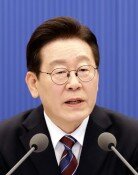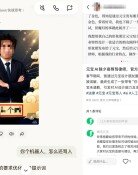Police Bust Illegal Tech Export Ring
Police Bust Illegal Tech Export Ring
Posted July. 29, 2006 12:06,
Former executives of a semi-conductor company and an incumbent university professor who were planning to manufacture mass-produce memory chips in China by leaking confidential information, including non-memory circuit diagrams, were caught by a joint investigation by the prosecution and the National Intelligence Service (NIS).
According to the NIS which first obtained the information on their illegal activities, 72 cases of technology leakage to overseas were found in-between January 2003 and June 2006 where 54 cases (75 percent) were in the information technology area, including semiconductors and cell phones.
The Seoul Central Prosecutors high-tech crime division on Friday arrested and indicted former sales director Park (42), former technical directors Hwang (47) and Kim (45) of a non-memory semiconductor manufacturer, and indicted outside director Gwak (42), who is a university professor, on charges of attempting to sell duplicated products through leaking classified information.
Park propositioned Hwang and Kim in last May by saying, Lets produce and sell duplicated motor-control parts for semiconductor at lower prices in China. Those parts are essential in controlling sophisticated audio-visual devices, including DVDs. Hwang and Kim informed their plan to Gwak, who later decided to join them.
Hwang and Kim quit the company last year. Hwang leaked 12 diagrams of semiconductor circuits and files related to assembly specifications required to produce semiconductors, and Kim leaked other 13 diagrams of semiconductor circuits before quitting the company. Gwak hired the two as freelance assistant professors at the research center in a university where he was working as a director. He not only encouraged them to produce illegal semiconductors, but also made them report their progress. The research center, established to strengthen the alliance between industry and academic circles, also received research funds from the Ministry of Commerce, Industry, and Energy, according to the prosecution.
They completed duplicating three products in last September and were about to produce them from this March through a Chinese company. However, the NIS detected the technology leakage through its international intelligence network and handed over the information to the prosecution which has been carrying out the investigation ever since.
The company whose technology was leaked could have suffered from losses of 235 billion won, if the duplications were produced in China.
.
There used to be quite a number of cases where the employees leak classified information when they leave their companies. However, recently there have been also cases where vital information is leaked by partner companies, an official of the NIS said.
will71@donga.com







